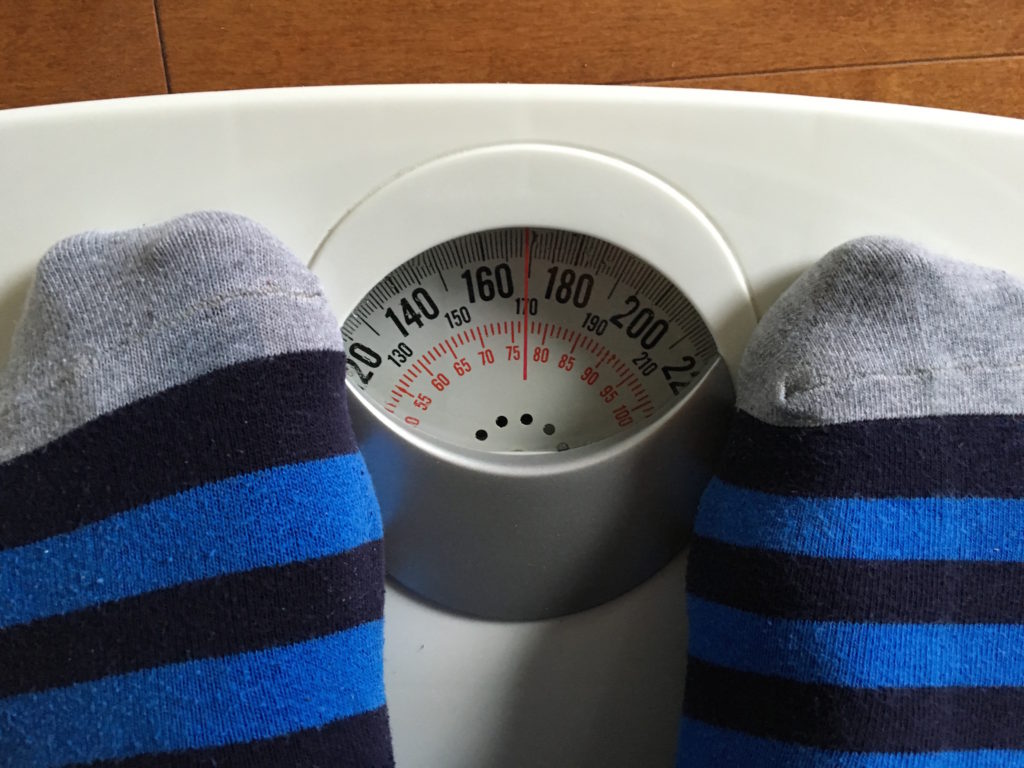FEATURE POST from Down Under:
It’s easy to think that we can look at the scales and know if we are completely healthy or not. Lots of messages we get in the community would make you think that the number of kilograms on the bathroom scales can tell you everything about your health. It’s actually not that simple!
I am a family doctor in Australia and currently I work with people with drug addiction or mental health problems. Many of my patients are very slim, but overall they are not in the best health. If we only looked at the kilograms on the scales when I weight them, you would think they are healthy. But as a group, people with addictions and severe mental health issues have a much lower life expectancy (1).
When people talk about “being healthy” they might mean a number of things (2) – their heart and lung health and how easily they can get about without feeling out of puff. Their muscle health and how strong they are, how much they can lift. Their mental health and how connected they feel to the people they care about.
Everyone, no matter what their weight, will be healthier by getting more active, eating fresh vegetables and fruit every day and being connected with friends, family and their community (3). Choosing one thing to change, rather than getting overwhelmed with trying to do too much at once, is usually the best place to start (4).
Sometimes there are many things that get in the way of these healthy choices – sickness, busyness and stress. Thinking about barriers that are getting in the way, plus ways to overcome them, is really important. A structured problem solving exercise might be a way to creatively think for solutions to the barriers you are facing. Give the following worksheet a try.
(http://www.blackdoginstitute.org.au/docs/16.ProblemStructuredProblemSolvingexercise.pdf)
So don’t be ruled by the kilograms alone! They don’t tell the full story of your health or the health of the people around you. Try to make one little change every week towards better health – a bit more activity, better food choices or re-connecting with people you care about. If this is tricky for you, your family doctor might be a good place to discuss how to get started.
References:
- Chang CK, Hayes RD, Perera G, Broadbent MT, Fernandes AC, Lee WE, et al. Life expectancy at birth for people with serious mental illness and other major disorders from a secondary mental health care case register in London. PloS one. 2011;6(5):e19590.
- What is health? The ability to adapt. Lancet (London, England). 2009;373(9666):781.
- Healthy Living: Victorian Government; 2016 [cited 2016 14 May]. Available from: https://www.betterhealth.vic.gov.au/healthyliving.
- Goal setting 2014 [cited 2016 14 May]. Available from: http://www.mindhealthconnect.org.au/goal-setting.
Written By Dr Elizabeth Strugiss, a Family Physician from Australia; Photo Credit D Klein
